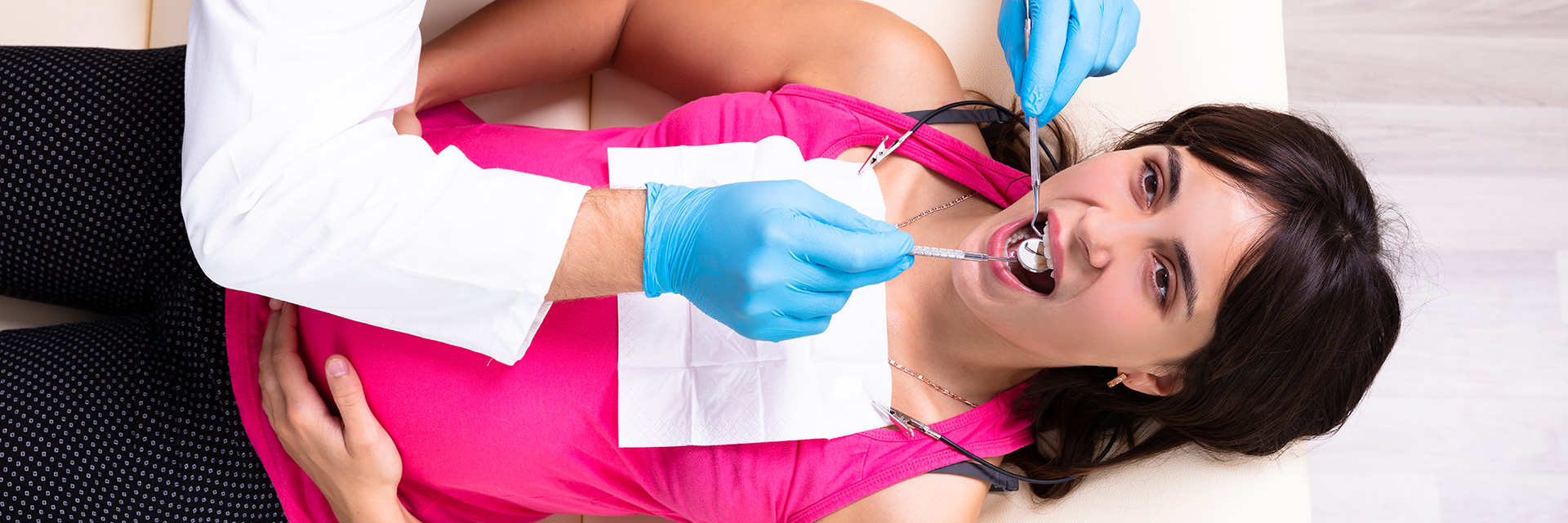In between all those trips to the doctor, the tour of the hospital and setting up the nursery, don’t forget to visit the dentist before your baby comes. Getting a checkup during pregnancy is safe and important for your dental health. It’s also an important part of your overall prenatal care.
Not only can you take care of cleanings and procedures before baby arrives, but your dentist can help you with any pregnancy-related dental symptoms you might be experiencing. Although many women make it nine months with no dental concerns, the hormonal changes that occur during pregnancy can worsen some oral health conditions — or even create new ones.
For example, some women develop a condition known as “pregnancy gingivitis,” an inflammation of the gums that can cause swelling and tenderness. If left untreated, pregnancy gingivitis has been associated with pregnancy complications like premature birth. If you eat more carbohydrates during pregnancy than usual, you may experience cavities; and morning sickness is known for increasing the amount of acid your mouth is exposed to, which can eat away at your tooth enamel.
If you’re pregnant and need a filling or tooth pulled, one thing you don’t have to worry about is the safety of the numbing medications your dentist may use. Local anesthetics are safe for both you and your baby, according to the American Dental Association. It’s also safe to get an X-ray during pregnancy. Although radiation from dental X-rays is extremely low, your dentist or hygienist will cover you with a leaded apron that minimizes exposure to the abdomen.
After your baby is born, your dental health remains important. Poor oral hygiene can result in you passing along cavity-causing oral bacteria to your infant through kissing, cleaning a dropped pacifier in your mouth or sharing a spoon after tasting your baby’s food.
Good oral hygiene, both during pregnancy and afterward, means:
- Brushing your teeth at least twice a day with a fluoride toothpaste
- Cleaning between your teeth once a day (using floss or another method approved by your dentist)
- Drinking water throughout the day
- Having regular oral exams, teeth cleanings and treatment, including a local anesthetic when needed and x-rays with proper shielding. These are all considered safe during pregnancy, according to the American Dental Association.
Good to Know
If you’re vomiting due to morning sickness or some kind of gastrointestinal illness, keep in mind that vomit contains stomach acids that can weaken your teeth. Don’t brush immediately after vomiting. Instead, rinse your mouth with a cup of water and a teaspoon of baking soda. Then wait about a half hour before brushing.
Talk with your dentist about what you need to do to protect and improve your oral health during pregnancy and beyond.

